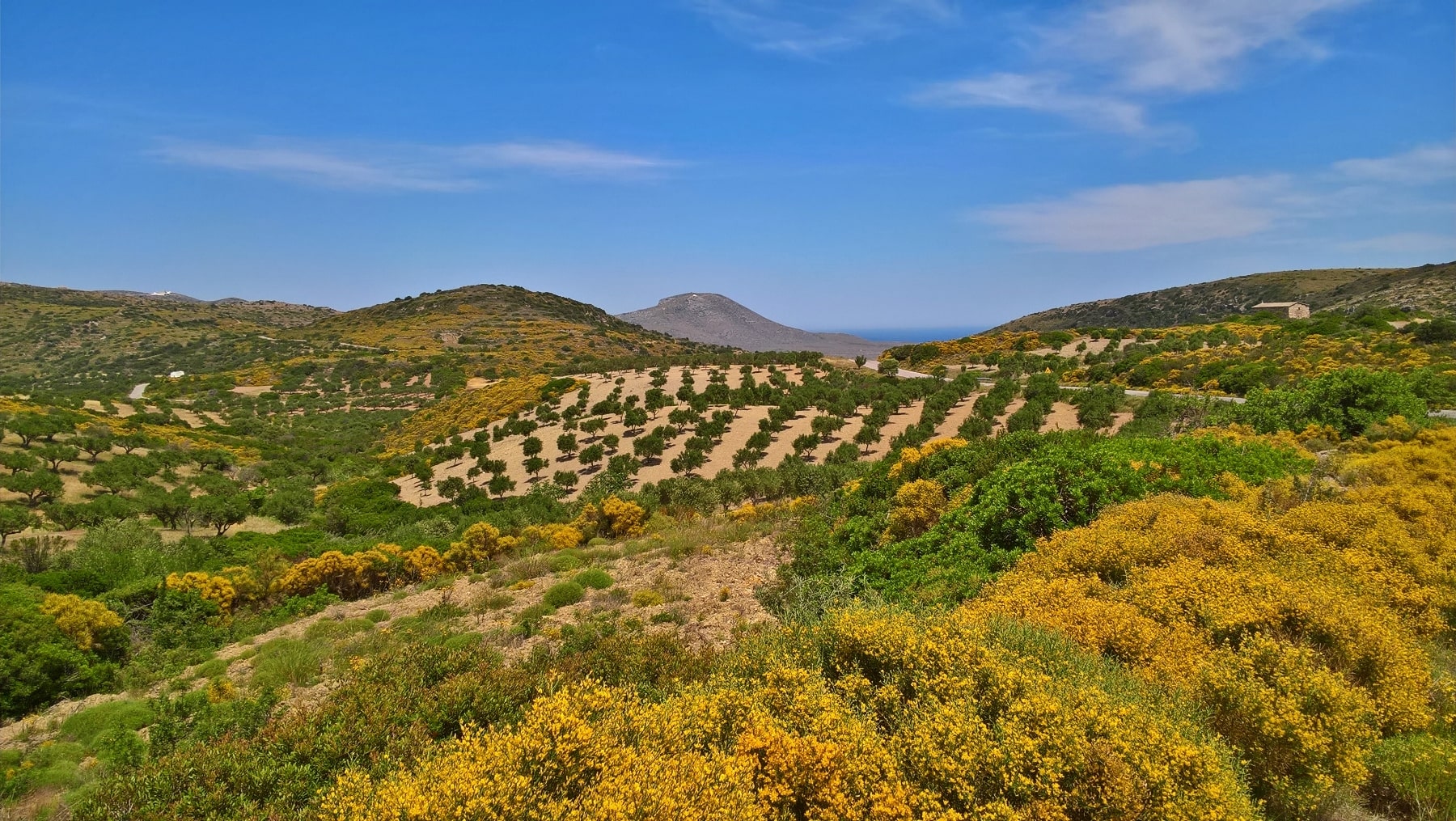A dishonest campaign
For a week now, Kathimerini newspaper has been publishing opinion pieces which have the obvious purpose of attacking the increasing domestic movement against the reckless spread of wind farms: on 30/5 Paschos Mandravelis made a start with “Not on Tinos, not anywhere“, to be followed by Th.P. Tassios on 7/6 with ”The hatred against wind energy“. The issue of alternative energy sources is complex and the only certainty is that the views of experts continue to differ in many respects; it is therefore natural for a pro-government newspaper to publish texts attempting to justify government plans for rapid spread of the whole territory of wind turbine clusters.
Unfortunately, instead of focusing on presenting the advantages of wind energy, messrs Mandravelis and Tassios elect the easier option attack of attacking who have the audacity to disagree. And they do so, not by means of rational analysis and argument, but with unsubstantiated personal charges and the abundant use of that coarse irony which so often characterizes the outbursts of Greek journalists and – alas – academics, when they indulge in populist rants.
In these attacks they make the elementary intellectual error of lumping together all dissidents – young or old, right or left, scientists or farmers – in order to present them as a single, amorphous mass of anti-progressives accused of bullying, immorality, selfishness and “ignorance of basic technical and economic data.” But the true dishonesty lies in the fact that, ignoring the actual arguments put forward by those who question the state’s current policy on RES, they choose to refute a series of childish arguments of their invention – in other words, they set up a row of Aunt Sallies or dummies along the lines of “I don’t like to see a wind turbine” or “I favoured different land use in these areas” in order to then demolish them triumphantly.
In fact, serious responses to the current plans for the installation of wind farms is nowhere so naive, nor of course as absolute as the invented slogan “Not on Tinos, not anywhere“ would suggest, which no rational opponent of wind turbines would embrace. Rational arguments against wind farms in Greece are many and difficult to ignore. Globally, doubts have multiplied around a number of technical issues, including often conflicting estimates of the total carbon footprint, the almost certain developments which will make wind energy impractical, unprofitable or inefficient in the near future, the problem of turbines abandoned due to damage or reduced efficiency and the near-impossibility of removing them, as well as the inherent problem of fluctuating production, which forces any Independent Power Transmission Operator to balance at all times total wind output with equivalent thermal energy units on standby.
These doubts are compounded by the problems created in our country by the infamous “Modernization of environmental legislation” Bill of 5/5/20, which essentially removes or weakens all potential controls capable of limiting the reckless spread of wind farms. And this brings up the vexed issue of trust of trust, which of course is never touched upon by Greek apologists for wind farms: the fact that based on their past behaviour, the blatant social irresponsibility with which they act, the lack of basic respect for local communities, the preference for opaque corporate structures which conceal owners and interests, no one has reason to trust either the words or the intentions of the large corporations battening upon the RES industry. Most especially now that the recent bill has castrated the licensing process in the name of supposedly increased efficiency.
It is unfortunate that the authors of these “Opinions” do not just falsify the views of those who oppose the uncontrolled spread of wind turbines, but also make categorical statements of doubtful validity. Tassios, for example, even though he should as an academic have checked his sources, claims that “the number of tourists visiting the UK’s wind farms has increased by 30%.” I don’t know where the professor found this information from and when it dates from, but the fact is that no accessible research confirms it. It is certainly the case that when the first wind parks opened they attracted visitors in England and northern Europe, but with exponential growth the novelty (and the numbers) quickly faded. Nearly every reliable study which has been published on the subject of the effect of wind parks on local tourism in the UK (which differs essentially from that in Greece) conclude that the effect tends to minimal. A brief selection: “a small negative impact on the economy of Scotland” » (Scottish Government report, 2008), “no measurable economic impact, either positively or negatively” (University of Edinburgh, 2012), “There is potential for negative impacts at a very local level” and “The proposed wind farm developments are in themselves unlikely to attract visitors” (Welsh Government Study, 2014).
We know the subject is complex, and that clear-cut choices are few and far between. However, senseless polemics lead to nothing more polarisation and misunderstanding. The one point on which both sides ought to agree is that is inconceivable that the energy and environmental future of Greece should be decided upon by purely financial considerations, making a mockery of both democratic and scientific procedures.
Sources:
https://www.kathimerini.gr/1080696/opinion/epikairothta/politikh/oyte-sthn-thno-oyte-poy8ena
https://www.kathimerini.gr/1081615/opinion/epikairothta/politikh/to-misos-kata-ths-aiolikhs-energeias



